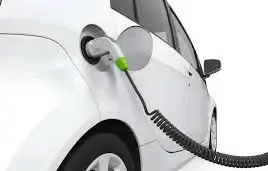India Poised to Establish Global Standards for Sustainable Mobility through EV Initiatives: Report

New Delhi, Dec 12 (NationPress) With EV sales reaching 1.2 million and achieving 5 percent market penetration in FY24, the movement towards electric mobility is swiftly gaining traction in India, according to a report released on Thursday. It highlights that appropriate policy backing and expedited decision-making can enhance collaborations among stakeholders.
Electric Vehicles are emerging as a revolutionary solution, aligning with India’s commitment at COP26 to transition to 100 percent zero-emission vehicles by 2040.
As per the KPMG in India-CII report, infrastructure and policy are crucial to hastening EV adoption in India’s vision for a $5 trillion economy.
“The electric vehicle revolution signifies the onset of a new era for India—an era characterized by innovation, economic growth, and environmental stewardship. This transcends mere transition to zero-emission transportation; it represents a comprehensive transformation of infrastructure, finance, technology, and mindsets,” stated Raghavan Vishwanathan, Partner-Automotive, KPMG in India.
“By bridging infrastructure gaps, creating economical pathways for consumers, and fostering societal trust in EVs, India can establish a global standard for sustainable mobility, green growth, and inclusive prosperity,” he further remarked.
The report outlines four fundamental pillars necessary for boosting EV adoption: physical infrastructure (expanding charging networks and enhancing battery recycling), power infrastructure (managing demand and integrating renewable energy), economic infrastructure (ensuring affordable financing and optimized taxation), and social infrastructure (raising stakeholder awareness and promoting education).
High EV adoption rates in states like Karnataka, Maharashtra, Delhi, and Kerala, which boast over 1,000 charging stations, underscore the significance of infrastructure. The World Bank has found that an infrastructure focus is four times more effective than demand incentives.
Various aspects such as policy support, total cost of ownership parity, a thriving startup ecosystem, and access to technology are contributing to this growth. Moreover, India has set an ambitious goal of 30 percent penetration by 2030 as part of the EV30@30 campaign.
“Proper policy support and swift decision-making can facilitate collaborations among stakeholders within the EV ecosystem, including government bodies, private companies, and global partners, which will drive innovation and investment necessary for developing infrastructure that meets the rising demand for EVs,” the report stated.









